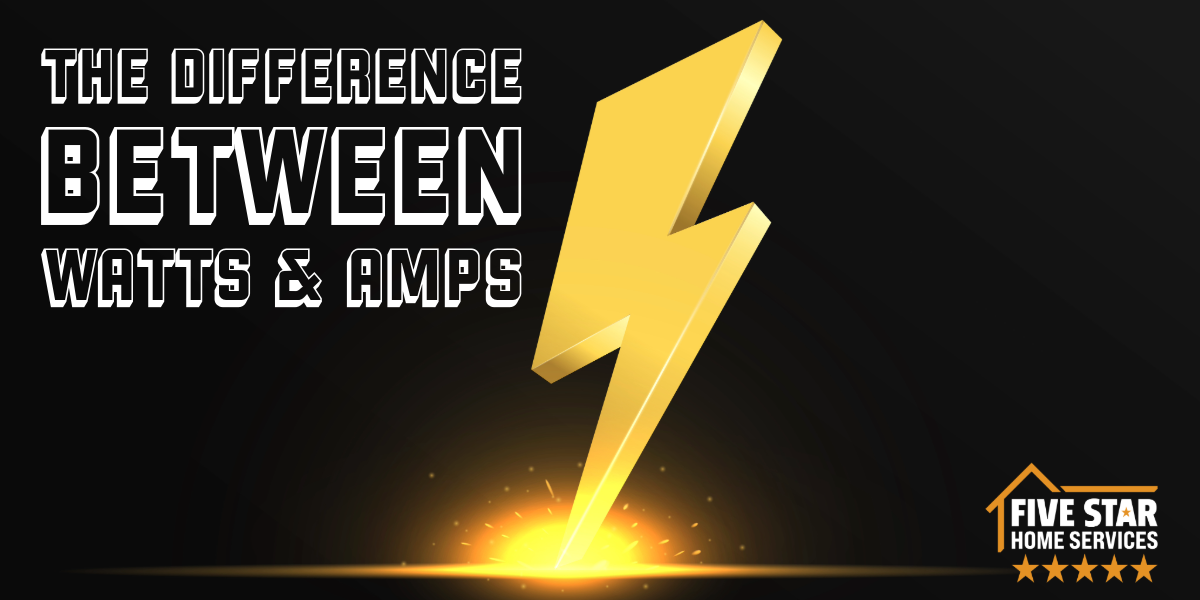Amps, watts and volts, what are the differences?
Without the availability of electricity, our lives would be unthinkable.
In today’s modern world, almost everything revolves around it. Without it, there would be no television systems, no broadcasting, no telephone communication or Internet.
To make matters worse, your home comfort systems, home theatres, laptops, electronics, and countless other appliances would be obsolete. Simply put, the overall importance of electrical engineering cannot be underestimated.
That said, anyone who has ever purchased any type of electrical device or electronic appliance has probably heard of the terms amperage (Amps), wattage (Watts), and voltage (Volts).
Unfortunately, however, not everyone understands the actual meaning of these terms.
Having a good understanding of amps, volts, and watts not only makes you an informed homeowner but can also enable you to save significant cash on your monthly energy bills.
Perhaps that is the primary reason why we thought it would be of utmost importance to explain what these three electrical terms mean. After all, not everyone can be an electrician. However, as a dedicated industry leader, we at Five Star Home Services are here to inform and educate you about the differences. We are your local electrician in Greater Columbus, Greater Dayton, Greater Cincinnati and surrounding areas!
Definitions
Amps, watts, and volts are essential units of measurement in electricity, each signifying a different concept.
Volts (V)
Volts denote the electrical potential difference, often called “electrical pressure.” As water pressure in a pipe propels water to move, voltage pushes electric charges in a circuit to create a current.
Amps (A)
Amps, or Amperes, measure the electric current. In simpler terms, Amps quantify the flow rate of electric charge in a circuit.
Watts (W)
Watts represents the rate of energy transfer, equating to one joule per second. They essentially measure how much electricity is being used over a certain period. The relationship between these three quantities is described by Ohm’s law and the power equation, where power (in Watts) equals voltage (in Volts) multiplied by the current (in Amps).
Interestingly, watts can also be calculated by multiplying volts and amps. However, this formula only works when the circuit contains purely resistive elements, meaning no inductors or capacitors. Complex calculations are required to determine the total power dissipation in a circuit when these components are present.
One practical application of understanding these units is in household electricity usage. By monitoring the watts consumed by different devices, you can better understand your energy usage and potentially find ways to conserve electricity. Additionally, learning about these units is crucial for safety purposes as well. Understanding how volts and amps work can help prevent electrical accidents in homes and workplaces.
Summary
In summary, while volts, amps, and watts may seem abstract at first glance, they play a significant role in our daily lives. Whether it’s powering electronic devices, lighting up a room, or even measuring energy consumption, these units are essential to the functioning of electricity. This basic knowledge can help us use electricity more efficiently and safely.
Moreover, understanding the relationship between volts, amps, and watts is crucial when dealing with electronics and electrical circuits. Knowing how these units interact with each other is essential in troubleshooting and identifying potential issues. For instance, if a device is drawing too much power (measured in watts), it could be due to an increase in voltage or current, leading to overheating and damage.
Need help with an electrical question or problem?
If you need further assistance, you should know your friends at Five Star Home Services are always standing by to help you with all your residential and commercial electrical problems and needs. Schedule services today!
Call us today at (833) 405-8009!


